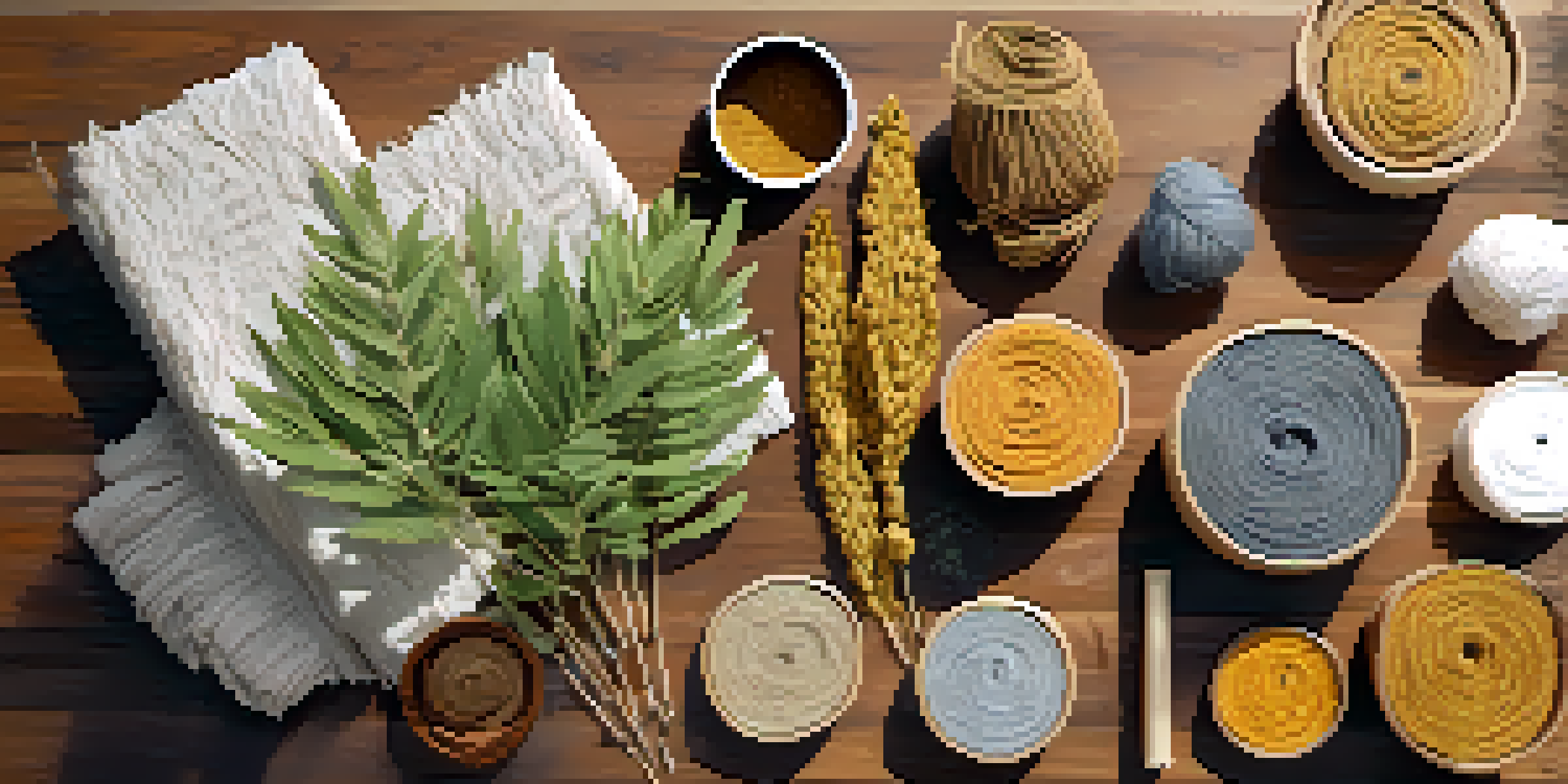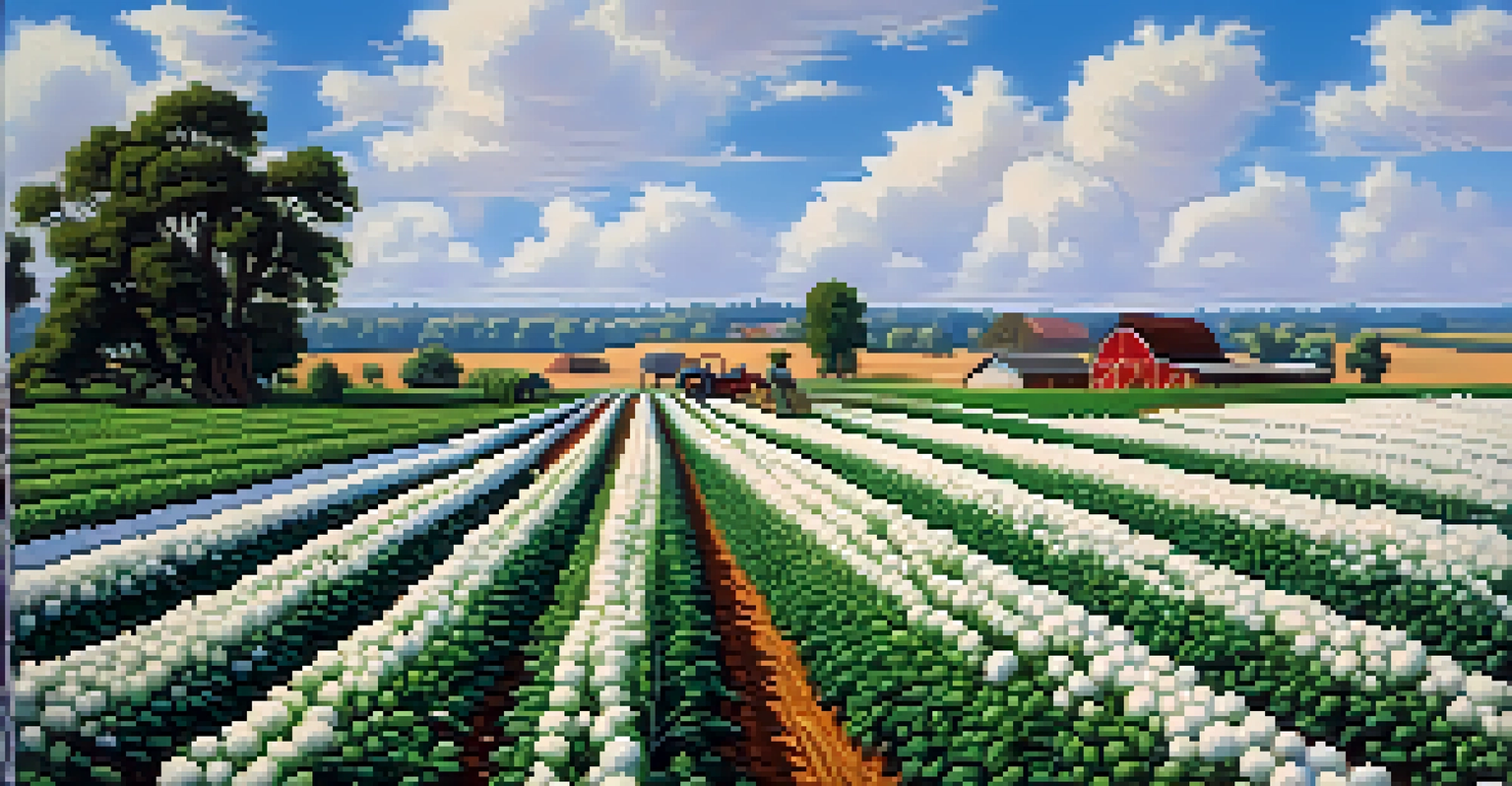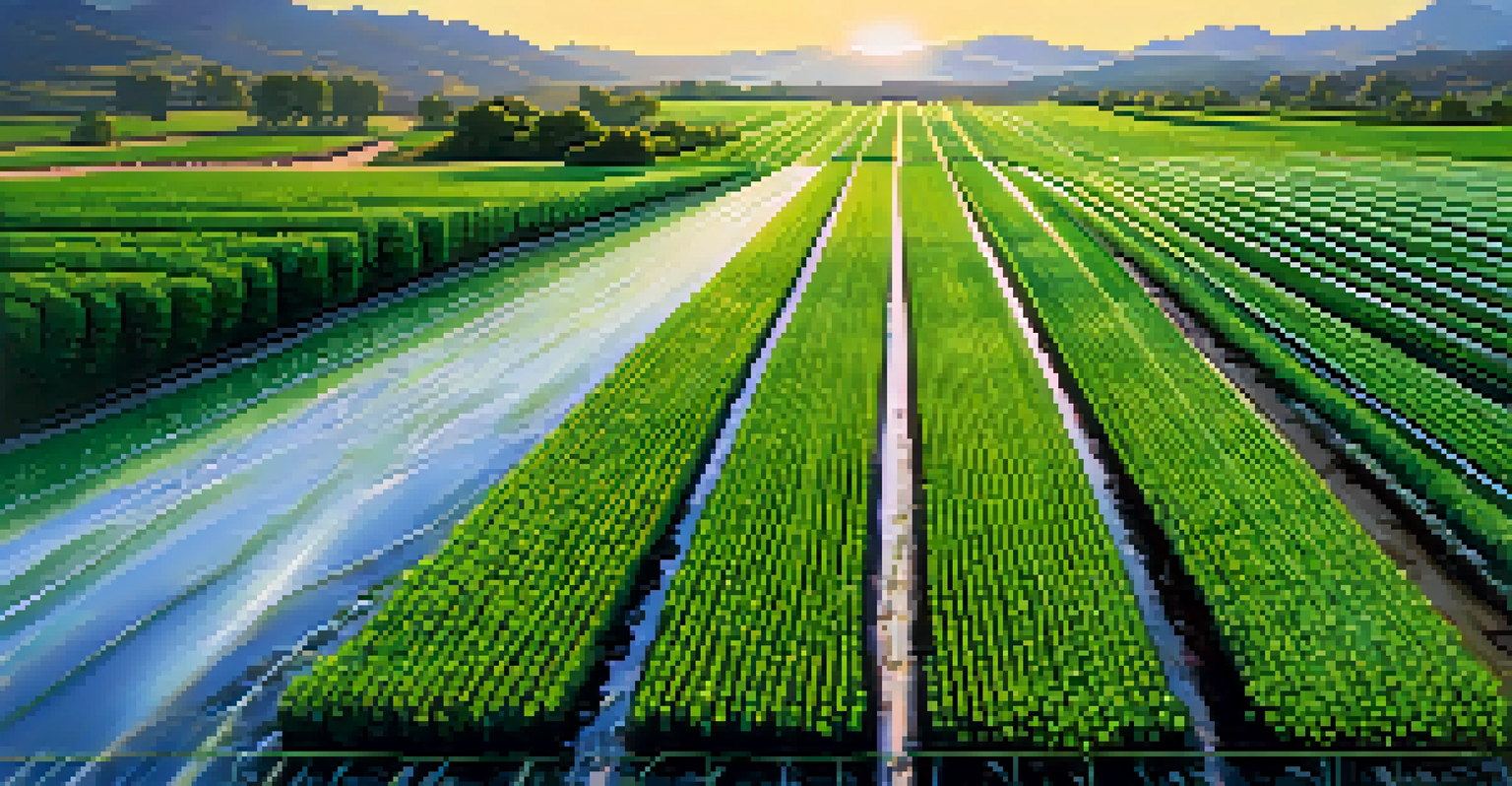Sustainable Practices in the Plant Fiber Textile Industry

Understanding Plant Fiber Textiles and Their Importance
Plant fiber textiles are materials made from natural sources like cotton, hemp, and flax. These fibers are not only biodegradable but also renewable, making them a crucial part of sustainable fashion. As consumers become more environmentally conscious, the demand for plant-based textiles continues to rise.
The greatest threat to our planet is the belief that someone else will save it.
By utilizing natural fibers, the textile industry can reduce its reliance on synthetic materials, which often come from petroleum and contribute to pollution. Additionally, plant fibers tend to have a lower carbon footprint compared to their synthetic counterparts. This shift towards natural fibers is essential for a more sustainable future.
Moreover, the cultivation of these plants can promote biodiversity and improve soil health. By choosing plant fiber textiles, consumers support practices that are kinder to the planet, making informed choices that align with their values.
The Role of Organic Farming in Fiber Production
Organic farming plays a pivotal role in sustainable plant fiber production. By avoiding synthetic pesticides and fertilizers, organic practices promote healthier ecosystems and reduce soil degradation. This approach not only benefits the environment but also ensures safer working conditions for farmers.

Crop rotation and polyculture are common techniques used in organic farming that enhance soil fertility and reduce pest problems. These methods allow for a more resilient agricultural system, which is essential for producing high-quality fibers. In contrast to conventional methods, organic farming helps maintain the balance of nature.
Importance of Plant Fiber Textiles
Plant fiber textiles are biodegradable and renewable, making them essential for sustainable fashion.
Furthermore, organic farming often requires less water than traditional practices, which is vital in regions facing water scarcity. By supporting organic plant fiber textiles, consumers contribute to a more sustainable agricultural landscape, benefiting both people and the planet.
Innovations in Water Management for Textile Production
Water management is a critical concern in the plant fiber textile industry. Traditional farming practices can lead to significant water wastage, impacting local communities and ecosystems. However, innovative approaches are emerging to use water more efficiently during cultivation and processing.
Sustainability is no longer about doing less harm. It's about doing more good.
Techniques like drip irrigation and rainwater harvesting are becoming more popular among sustainable farmers. These methods not only conserve water but also enhance crop yields, allowing farmers to produce more with less. This shift towards smarter water usage is essential in combating the growing water crisis.
Additionally, companies are exploring water recycling systems in textile processing, which can significantly reduce water consumption. By prioritizing sustainable water practices, the industry can minimize its environmental impact while maintaining high standards of production.
Reducing Chemical Usage in Textile Manufacturing
One of the biggest challenges in the textile industry is the heavy reliance on chemicals for dyeing and finishing processes. Many of these chemicals can be harmful to both the environment and human health. As a result, the push for sustainable practices has led to the development of non-toxic alternatives.
Natural dyes derived from plants, minerals, and other organic sources are gaining traction as eco-friendly options. These dyes not only reduce chemical exposure but also create unique colors that appeal to consumers. The use of biodegradable finishes further enhances the sustainability of plant fiber textiles.
Role of Organic Farming
Organic farming enhances plant fiber production by promoting healthier ecosystems and reducing chemical use.
Moreover, companies are investing in innovative technologies that minimize water and energy use during manufacturing. By adopting these practices, the textile industry can significantly reduce its ecological footprint while producing beautiful, sustainable products.
Embracing Circular Economy Principles in Textiles
The circular economy is a transformative model that encourages the reuse and recycling of materials, extending the lifecycle of products. In the plant fiber textile industry, this means designing garments that can be easily disassembled and repurposed, minimizing waste.
Brands are increasingly focusing on creating closed-loop systems where used textiles are collected, processed, and turned back into raw materials. This approach reduces the need for new resources and lowers the environmental impact associated with production. It also promotes a culture of sustainability among consumers.
By embracing circular economy principles, the industry can create a more sustainable future where materials are valued, not discarded. This shift not only benefits the environment but also offers economic opportunities through new business models and innovative practices.
Consumer Awareness and Its Impact on Sustainable Practices
Consumer awareness is a powerful driver of change in the plant fiber textile industry. As shoppers become more informed about the environmental impact of their choices, they increasingly seek sustainable options. This demand encourages brands to adopt more eco-friendly practices in their production processes.
Social media and online platforms play a significant role in raising awareness about sustainable textiles. Influencers and activists share insights that educate consumers on the benefits of plant fiber textiles and the importance of supporting sustainable brands. This shift in consumer behavior is crucial for the industry's evolution.
Future of Sustainable Textiles
Innovations in biotechnology and digital technologies are driving the evolution of sustainable practices in the textile industry.
Moreover, transparency in the supply chain allows consumers to make informed decisions. By supporting brands that prioritize sustainability, shoppers can contribute to a growing movement that values ethical production and environmental stewardship.
Future Trends in Sustainable Plant Fiber Textiles
The future of sustainable practices in the plant fiber textile industry looks promising, with ongoing innovations and trends shaping the landscape. Advances in biotechnology are leading to the development of new, sustainable fibers that require fewer resources while maintaining high performance.
Additionally, the integration of digital technologies is revolutionizing the way textiles are produced and consumed. From 3D knitting to virtual fitting rooms, these innovations reduce waste and enhance the shopping experience. Such technologies align well with sustainable goals, creating a more efficient industry.

As awareness of environmental issues continues to grow, it’s likely that more brands will commit to sustainability. This collective effort can drive significant changes in the industry, paving the way for a future where plant fiber textiles are not only eco-friendly but also mainstream.